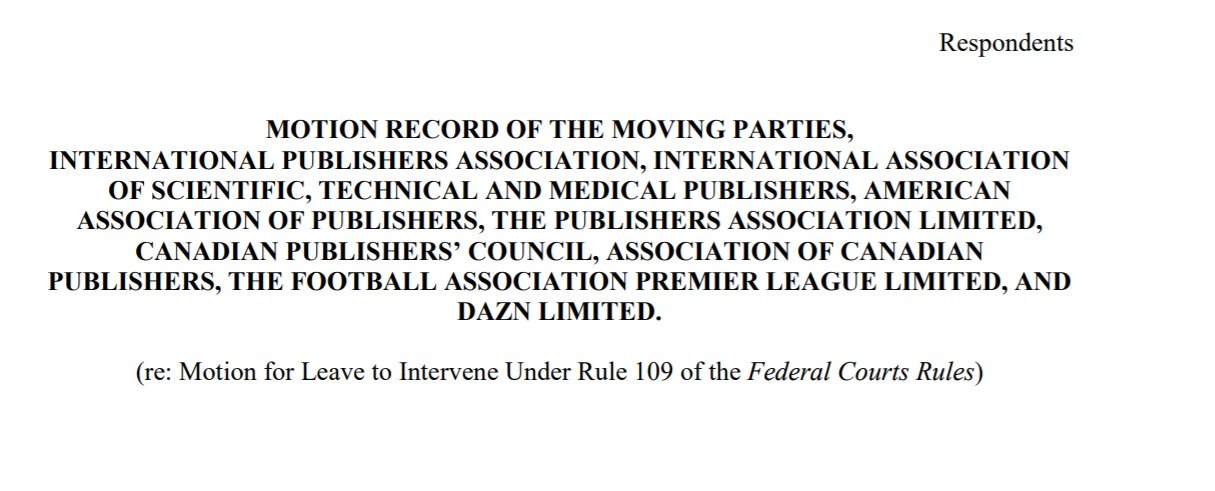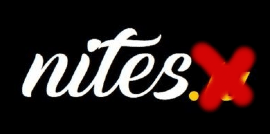Music, Publishing and Sports Industries Back Canada’s Pirate Site Blockades
jeudi 14 mai 2020 à 12:57 Two years ago, Canadian broadcasting giants Groupe TVA, Bell, and Rogers took the relatively small pirate IPTV service GoldTV to court.
Two years ago, Canadian broadcasting giants Groupe TVA, Bell, and Rogers took the relatively small pirate IPTV service GoldTV to court.
What started as a straightforward copyright lawsuit soon became much more than that. With the pirate site not responding, the rightsholders requested an injunction requiring local ISPs to block the service.
Fast forward a few months and Canada became the first North American country to implement a court-ordered Internet provider blockade of a pirate site.
This was a big win for the three companies whose plan for a Government-sanctioned pirate site blocking scheme was previously denied. And, given the interest in site-blocking orders around the world, it was likely just the start.
While most ISPs accepted the order without protest, TekSavvy appealed. This appeal is ongoing and has gained the interest of many copyright groups, which would all like to have their say in court.
Last week, several companies and groups representing the music industry, publishers, and sports organizations, asked the Federal Court of Appeal to have their say in the matter. As so-called intervenors, they plan to stress the importance of pirate site-blocking.
The first filing comes from the International Confederation of Music Publishers (ICMP), Music Canada, and IFPI. They inform the court that their opinion should be heard as they have vast experience with anti-piracy measures, which they believe are vital to the survival of the music industry.
The music organizations inform the court that they have “significant international experience” when it comes to “effective enforcement” against Internet piracy. This includes site-blocking efforts in other countries.
In addition, they argue that they have a good understanding of the broader implications of these anti-piracy measures, which can guide the Federal Court of Appeal to make the right decision.
“[A]s representatives of the music industry, which has long been at the forefront of the battle against online copyright piracy, the Music Industry Associations seek to assist the Court in understanding the broader impacts of its decision across the cultural industries,” their submission reads.
The second motion to intervene comes from a broader group of rightsholders. This includes several publisher groups, such as the International Publishers Association, and sports companies, including the Premier League and streaming service DAZN.

Similar to the music industry, the groups offer to bring their own unique perspective to the table. They argue that their respective industries are harmed by piracy and see site-blocking as a prime tool to limit the effects.
The groups don’t agree with Teksavvy’s argument that blockades violate freedom of speech values or rights and would like to present their own argument in court.
In addition, they also counter similar arguments from United Nations Special Rapporteur David Kaye, who previously warned that website blocking is an extreme measure that could restrict people’s freedom of expression.
“The United Nations Special Rapporteur on the promotion and protection of the right to freedom of opinion and expression analysis is flawed, is inconsistent with the international jurisprudence, and should not be relied on by this Court,” the publishing and sports groups write.
In their motion, the groups acknowledge that any site-blocking decision should balance the interests of copyright holders, ISPs and internet users. However, they believe that the scale clearly tips in their favor.
The Federal Court of Appeal will now review the motions to see if the music industry, publishing and sports organizations can have their say in court. If anything, this broad interest shows that if Teksavvy loses the appeal, many more site-blocking applications are expected to come in.
—
A copy of the motion from the music groups is available here (pdf) and a copy of the publishers and sports groups submissions can be found here (pdf).
From: TF, for the latest news on copyright battles, torrent sites and more. We also help you to find the best anonymous VPN.
 When Netflix had just started offering online video content years ago, piracy wasn’t seen as a major threat.
When Netflix had just started offering online video content years ago, piracy wasn’t seen as a major threat.





 The coronavirus pandemic has severely impacted the lives of hundreds of millions of people around the world.
The coronavirus pandemic has severely impacted the lives of hundreds of millions of people around the world. 
